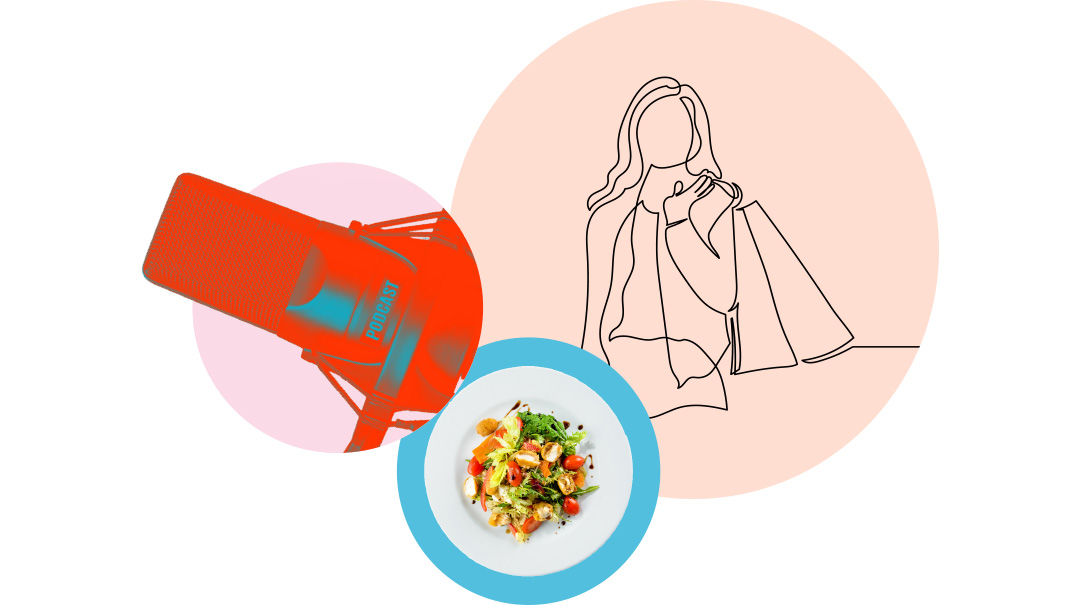Family First Inbox: Issue 822

“The whole food, plant-based revolution is growing rapidly in popularity. Maybe it’s time to introduce this successful approach to the frum community?”

What Are Our Values? [The Conversation Continues / Issue 820]
I commend Family First magazine for opening up such a valuable discussion on excessive materialism in our community. As I read the Inbox, I cannot help but think about how our focus on materialism is a microcosm of what is happening in the frum world around us.
Take our sweet Bais Yaakov girls. These girls are the future of our nation. They are being taught everything they are supposed to — Chumash, Navi, Yahadus, Hashkafah — you name it. But simultaneously, they are being taught in the most subtle and subconscious ways that externality is what matters. As long as I look like a Bais Yaakov girl — wear my hair like this, wear this zip-up, with these shoes, I’m good to go. Are we raising our Jewish daughters to think about their souls or just how we look on the outside?
This materialism is not only about “things getting out of hand.” Not to sound so cliché, but it’s about the future mothers of Klal Yisrael.
I am somewhat involved in the camp world, and I have been privy to the preparation it takes to pull off a successful summer that the girls will find thrilling. What I also see, however, is the pull to “appease” the girls with “stuff” — creative swag, crazy trips, dozens of recorded songs, over-indulgent overnights, or even cross-country road trips. What happened to those good ole campfires and “homemade” fun that made camp so cozy and wholesome?
I understand that our children are different today, and we must cater to a new generation. However, this is about what values we are transmitting to our girls and the message that we impart while doing so. We (myself included) have left G-d out of the picture in a big way. Maybe it’s time that we start having some real conversations about Klal Yisrael’s future and how we are going to get there.
E.S.
Clifton, NJ
Privilege Comes with Responsibility [The Conversation Continues / Issue 820]
Although I never met Chana Biton, one of the respondents commenting on the excessive materialism in our community, she is my soul sister.
I have Hungarian blood and have always been perfectly turned out. (I remember getting an award for that in sleepaway camp.) I, too, can describe at length how to match your earrings, shoes, handbag, and eyeshadow, whether or not I do so myself. If I would walk into a store, my eyes would settle on an item of tremendous quality and intricacy which would no doubt be the most expensive thing the store sells.
I, too, married a long-term learner. My husband actually was planning to learn for only a year, but his learning has been incredibly important, and he is still at it — with siyata d’Shmaya and my encouragement. I, too, have a daughter who married a long-term learner.
The true way to succeed at a learning lifestyle is with siyata d’Shmaya. That, no one can take credit for. However, I believe that one of the ways to merit that siyata d’Shmaya is to learn how to be truly happy without depending on all these expensive physical accoutrements. For example, suppose my husband wanted to present me with real gold jewelry. If we scrimped, saved, and ended up with $500, that wouldn’t even get me one gold earring stud, which I wouldn’t like in any case.
Because I like nice things, I’ve become incredibly savvy at shopping and home decorating on a shoestring budget. I wear silver jewelry, and I am perfectly okay with that. A little bit of fresh paint that we apply ourselves, cheap window treatments, tassels, and contrasting walls with wallpaper, plants, and moldings can do wonders for a room. (Amazon has 90 inches of self-stick molding for $12.79.) I’m truly okay with these things.
I’m concerned about what is happening to our society. Recently Mishpacha asked various respondents about gifting. A Lakewood couple answered that they give Michele watches and $700 jewelry for graduation presents to single girls. Am I the only one who noticed that? As goes Lakewood, goes the rest of the frum world. I, a married woman, haven’t received a $700 piece of jewelry for ages. If we quietly accept these standards for kollel society, then we are teaching our daughters who marry kollel husbands to “have their cake and eat it too,” without developing any backbone to be moser nefesh to live a kollel lifestyle. How is this sustainable? And why are we happily marching down this path which is taking us to a place none of us wish to go?
Since my kids were little, I’ve stressed that in life, privileges and responsibilities go hand in hand. All privilege and no responsibility, you have a spoiled child. All responsibility and no privilege is a child who grew up with trauma. Nothing in life is free. The ruchniyus privileges of a kollel lifestyle come with gashmiyus responsibilities. It is our children’s job to nudge us for the latest gashmiyus society is pushing (“but Ma, everyone has it!”), and it is our job to individually and collectively set boundaries. Who is going to teach this to our children if not us? Can we all step up to the plate and put a stop to this ridiculous trend of throwing money away, teaching children a lesson that is bad for them?
Anonymous
Shortcut to Social Status [The Conversation Continues / Issue 820]
The recent article examining the rising lifestyle standards in the frum community raised some excellent points, and the responses offered some thought-provoking perspectives. As we’re analyzing this phenomenon, it’s important to distinguish between liking beautiful things and normalizing a high-end standard. There is nothing more beautiful about a $700 Gucci sneaker with the red and green stripe than an Adidas sneaker with a similar stripe, which costs ten times less. There is nothing nicer about a Burberry check scarf than a high-quality tartan scarf. A white T-shirt that says “Chanel” or “Givenchy” across the front can be identical to a tee that says “I am a loser” in the same font.
What’s really going on is that we’re shelling out all that money as an easy shortcut to social status. It begins innocently enough, with well-intentioned mothers who want to give their children (and themselves) a competitive advantage over their peers, or more likely, a means to keep up. Let’s admit that aesthetics have nothing to do with it. Those with a true appreciation for beautiful things aren’t the ones driving these trends and upping everyone’s standards.
The article correctly states that if the kids aren’t feeling confident in their inherent value, all they’re left with are the external appearances. The solution, therefore, can only be to build them up internally by appreciating their individuality and focusing on their accomplishments. If we expend our efforts on their (and our) growth in middos, in learning, in character building, and talent development, then their self-image won’t be as closely tied to their “stuff.” (I know it sounds trite, but that’s because it’s true.)
It is also essential we deemphasize entitlement.
Having a lot of money is a tremendous responsibility. Often the nisayon of affluence is thought of in the context of tzedakah, and there are tremendously generous baalei tzedakah among the wealthy Yidden who pass this test with flying colors. But perhaps that’s not the most difficult part of the nisayon of wealth. Maybe the more challenging aspect is after the maaser or chomesh is given, are we then free to indulge to our heart’s desire? Perhaps the biggest act of “tzedakah” in this generation could be to cut back on spending and lead by example in exercising restraint.
M.M.
Monsey
The Root of Obesity [Give it A Shot / Issue 819]
At the outset of the article on weight loss shots, Johanna Eichenwald’s story clarifies what is at the root of the obesity epidemic. In Morocco, she ate a healthy, unprocessed diet in a healthy, unrushed way, sitting down for meals with family and friends. It’s the Western diet and Western habits that have caused the very serious problems with weight and health worldwide.
The article didn’t mention adopting a mostly plant-based diet filled with unprocessed healthy whole foods that has been proven to reduce weight, increase health, and even reverse disease without dieting, surgery, or injections. The whole food, plant-based revolution is growing rapidly in popularity. Maybe it’s time to introduce this successful approach to the frum community?
Sandie Freishtat
Jerusalem
Please Think of Us [Give It a Shot / Issue 819]
Recently I tried to refill my Ozempic prescription and was told by the pharmacy that it is on backorder and they do not know when they will be getting it in. A week later they called to tell me that they still do not know when it will be in stock, and I should call my doctor and request that she prescribe a different injectable medication.
I was ready to cry because Ozempic is the only medication that has been successful in treating my Type 2 diabetes. When I read that doctors are prescribing this as a “weight loss” drug, I am frustrated because for every person using it to control her weight, there is a person who is unable to get the medication she needs to control her Type 2 diabetes.
I was diagnosed with Type 2 diabetes around ten years ago and was prescribed Metformin. Over the years my prescription has increased, and it worked until it didn’t work anymore. I’ve tried Contrave, Trulicity, and Rybelsus and have had every one of the severe side effects, including vomiting, nausea and stomach issues, and days when I physically could not get out of bed. When my doctor suggested Ozempic (a little less than one and a half years ago), I said, “no way,” but he assured me that this medication is a bit different, and it’s my last chance before needing insulin. I did have some of the side effects, and due to my sensitivity to this type of medication, have continued to stay on the 0.25mg dose (most people increase to 1.5mg after the first six weeks.) There was an immediate change to my daily blood checks and A1C, and yes, I did lose a substantial amount of weight. I’ve always been overweight, and it was nice to lose weight (though some of that weight loss is a result of a change in my eating habits.)
Before you ask your doctor for an Ozempic prescription, please think about the people who need their diabetes medication and are unable to fill their prescriptions because others are using it for weight loss.
A Type 2 Diabetes Ozempic User
Cut the Men Some Slack [Serials]
Is it me or does it seem that Mishpacha is effectuating a narrative that the young frum males of the yeshivah community are self-absorbed, spoiled, and emotionally clueless? If I were an outsider of the yeshivah community, reading the tragic tale of Ephraim the law student (for now) and the sad story of Benny from Ramat Eshkol, I would think that the young male contingency is self-indulgent, pampered, and totally lacking in empathy to others, and especially to their hardworking, neglected, taken-for-granted wife.
Most young men in the yeshivah community are driven, sensitive, hardworking, caring individuals who do their best to balance the responsibilities of family, community, parnassah, and devoting time for learning. They are accomplishing this in 2022 when the exposure from the outside world is unprecedented. Let’s please cut them some slack.
Name Withheld
(Originally featured in Family First, Issue 822)
Oops! We could not locate your form.






